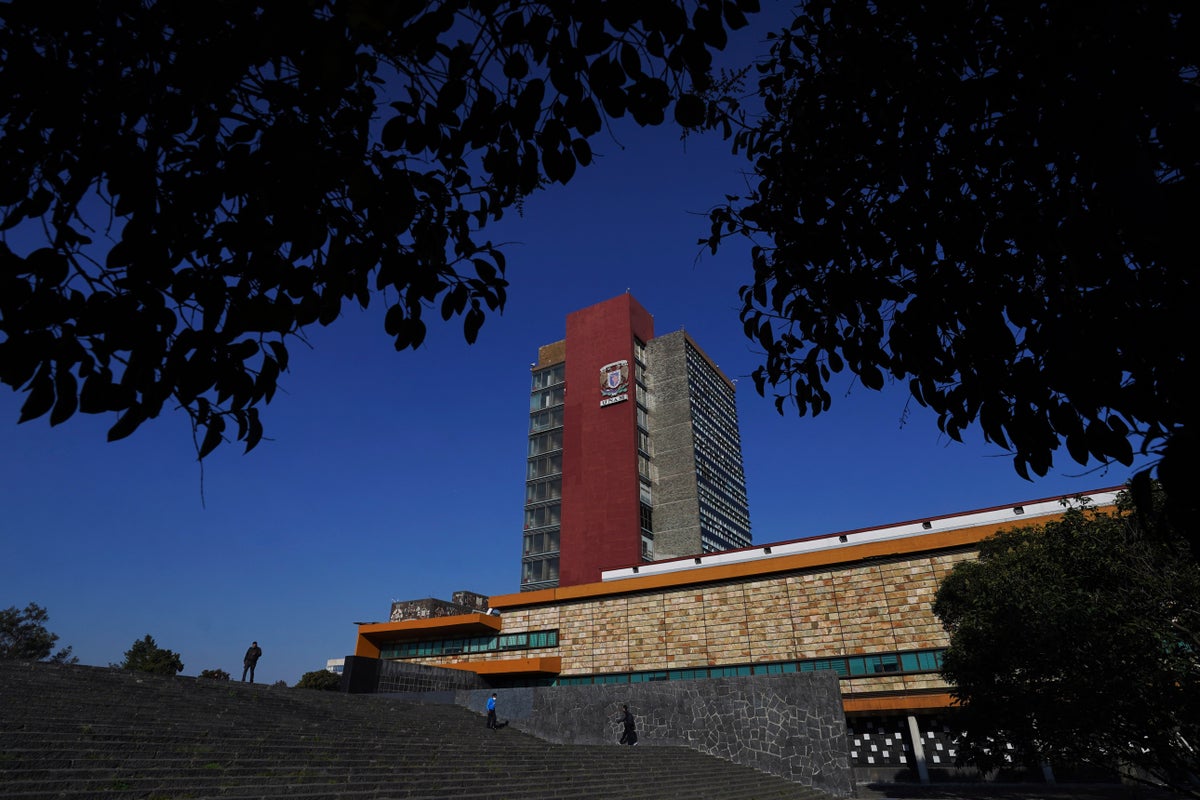
Classes were canceled or moved online this week in more than half of the departments at Mexico ’s National Autonomous University over security concerns following the recent killing of a student at a university feeder school and a spate of threats.
The rector of the country's leading university committed Tuesday to strengthening security measures and bolstering emotional support available to students.
The school has experienced cases of gender-based violence over the years, and is now investigating threats made against several female professors, in addition to last week’s killing of a 16-year-old student at the Sciences and Humanities School South campus.
The university has reported a dozen threats to the Mexico City prosecutor’s office, university General Counsel Hugo Concha said Tuesday. He said most concerning were threats via email and social platforms against four female professors from the chemistry department for “being women,” which referenced last week’s fatal attack.
Authorities have a suspect in the killing in custody. The 19-year-old is hospitalized after jumping from a building as he tried to make his escape. The preliminary investigation found links from the suspect to the “involuntary celibate” or “incel” ideology, a mostly online group of individuals, primarily men, who believe society unjustly denies them sexual or romantic attention.
Concha said that while the university has worked to establish protocols for the possibility of “incel” related incidents, it had not recorded a violent incident connected to it. He did not rule out that it could also be related to the threats to the professors.
The University Council’s security commission met Tuesday to discuss the concerns. Rector Leonardo Lomelí committed to ensuring the university community’s safety and providing psychological support to those who want it. The administrator said the university would take legal and disciplinary action against anyone found responsible for the threats.
Mexico President Claudia Sheinbaum said Tuesday during her daily news briefing that her administration would propose the creation of “safe spaces” where students can report threats or other harassment in online platforms.
The incidents have also happened at a time of year when historically there have been heightened tensions on campus. That's due to the Sept. 26 anniversary of the 2014 forced disappearances of 43 students from a teachers college in southern Mexico and the Oct. 2 anniversary of the Oct. 2, 1968 massacre of students in Mexico City’s iconic Tlatelolco plaza.
Fourteen departments had moved to online classes because students refused to come to classes and another 14 were completely shut down by the students and faculty.
Concha said last week’s attack “created a more problematic atmosphere, of high intensity, which has driven the university to directly confront and worry about addressing security issues.”







